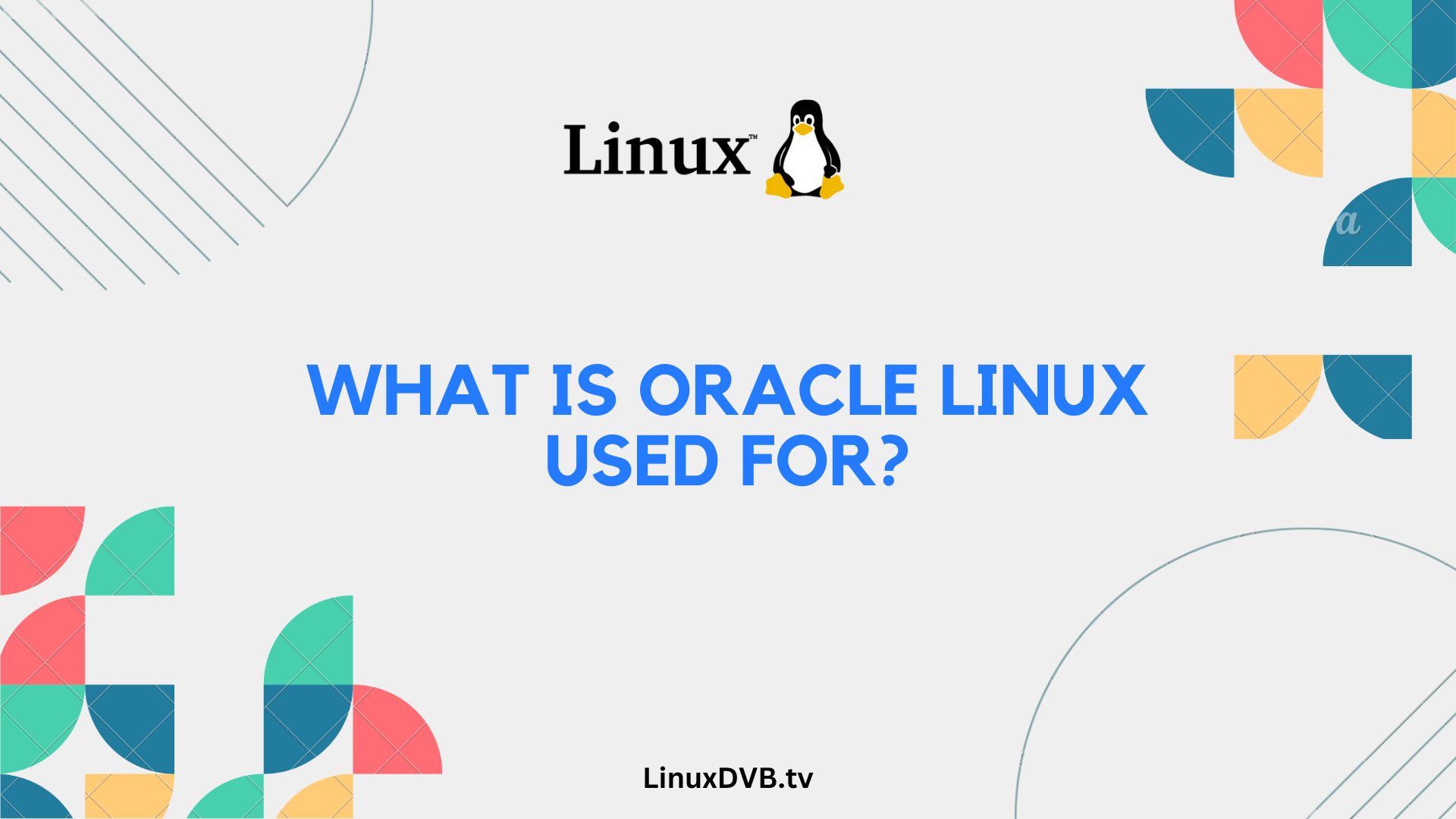Introduction
Welcome to a deep dive into the world of Oracle Linux. In this article, we’ll explore the versatility and utility of Oracle Linux, shedding light on its various applications and benefits. If you’re curious about what Oracle Linux is used for and how it can empower your IT endeavors, you’ve come to the right place.
Table of Contents
Oracle Linux: A Foundation for Success
Oracle Linux is a robust and open-source operating system developed by Oracle Corporation. It serves as a foundational component for various enterprise solutions, offering a multitude of applications and advantages. Let’s delve into the specifics:
Oracle Linux for Data Centers
In modern data center environments, Oracle Linux plays a pivotal role. Its scalability, security, and high availability make it an ideal choice for hosting critical workloads, databases, and applications. Whether you’re managing a small data center or a massive cloud infrastructure, Oracle Linux provides the stability and performance you need.
Ensuring Security with Oracle Linux
In an era where cybersecurity is paramount, Oracle Linux stands as a bastion of protection. It offers a range of security features, including mandatory access control, cryptographic capabilities, and continuous updates. Oracle Linux is your trusted ally in safeguarding sensitive data and maintaining regulatory compliance.
Oracle Linux in Cloud Computing
Cloud computing has transformed the IT landscape, and Oracle Linux is at the forefront of this revolution. It seamlessly integrates with cloud platforms, facilitating the deployment of applications and services. With Oracle Linux, you can harness the power of the cloud to scale your operations efficiently.
Optimizing Database Performance
Databases are the lifeblood of many organizations, and Oracle Linux is tailor-made to enhance database performance. Its optimized kernel and support for Oracle Database enable unparalleled speed and reliability. If you’re seeking to boost your database performance, Oracle Linux is the answer.
Oracle Linux Virtualization
Virtualization has redefined IT infrastructure management, and Oracle Linux excels in this arena. It offers a built-in hypervisor that allows you to create and manage virtual machines effortlessly. This flexibility is essential for resource allocation and efficient resource utilization.
Oracle Linux for DevOps
DevOps practices emphasize collaboration and automation, and Oracle Linux aligns perfectly with these principles. It provides tools and features that facilitate continuous integration and continuous delivery (CI/CD) pipelines. Oracle Linux empowers DevOps teams to streamline development workflows.
Supporting Containerization
Containers have revolutionized software deployment, and Oracle Linux is fully equipped to support containerization. Its compatibility with Docker and Kubernetes simplifies container management and orchestration, making it an ideal choice for containerized applications.
Oracle Linux for High-Performance Computing
High-performance computing (HPC) demands immense computational power, and Oracle Linux delivers on this front. Its support for high-performance interconnects and optimized libraries makes it a preferred choice for HPC clusters and supercomputing environments.
Oracle Linux for Education
Educational institutions can benefit from Oracle Linux’s cost-effectiveness and reliability. It offers support for a wide range of educational applications and tools, enabling seamless e-learning experiences for students and educators alike.
Frequently Asked Questions (FAQs)
Is Oracle Linux suitable for small businesses?
Absolutely! Oracle Linux is scalable, making it suitable for businesses of all sizes. Small businesses can benefit from its cost-effectiveness and robustness.
Can I migrate my existing Linux distribution to Oracle Linux?
Yes, you can. Oracle provides tools and documentation to facilitate the migration process, ensuring a smooth transition.
Does Oracle Linux require a subscription?
Oracle Linux offers both free and paid subscriptions. The choice depends on your specific needs and level of support required.
What makes Oracle Linux stand out in terms of security?
Oracle Linux’s security features include mandatory access control (MAC), continuous security updates, and extensive auditing capabilities, making it a secure choice for businesses.
Is Oracle Linux compatible with third-party applications?
Yes, Oracle Linux is compatible with a wide range of third-party applications, ensuring flexibility and ease of integration.
How can I get support for Oracle Linux?
Oracle offers various support options, including premier support, basic support, and community support. You can choose the level of support that suits your organization’s requirements.
What is Oracle Linux used for?
Oracle Linux is used as an operating system for running applications and databases, especially in enterprise environments.What is Oracle Linux good for?
Oracle Linux is good for businesses that require a stable and secure operating system for hosting critical applications and databases, as it is designed to provide high performance and reliability.Is Oracle Linux worth it?
Whether Oracle Linux is worth it depends on your specific needs and budget; it can be a valuable choice for organizations that prioritize enterprise-grade features and support, but may not be necessary for all use cases.Conclusion
In conclusion, Oracle Linux is a versatile and powerful operating system with a myriad of applications across various domains. Whether you’re running a data center, securing your infrastructure, or venturing into the world of cloud computing, Oracle Linux has you covered. Its adaptability, performance, and security make it a trusted choice for businesses of all sizes. Embrace Oracle Linux and unlock the full potential of your IT infrastructure.

